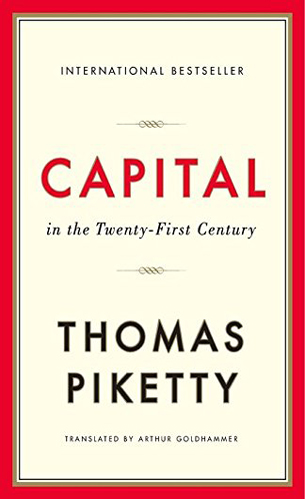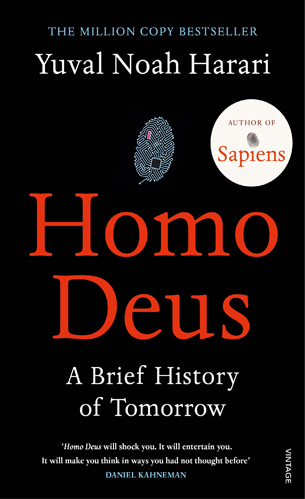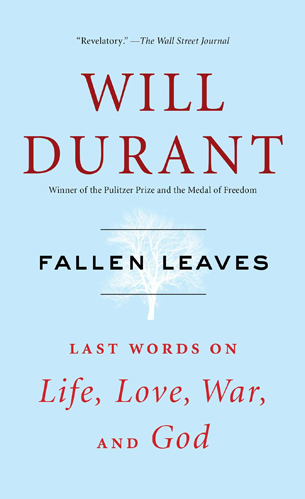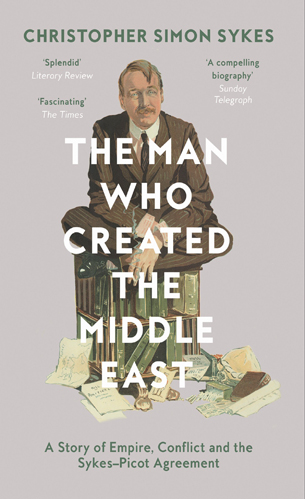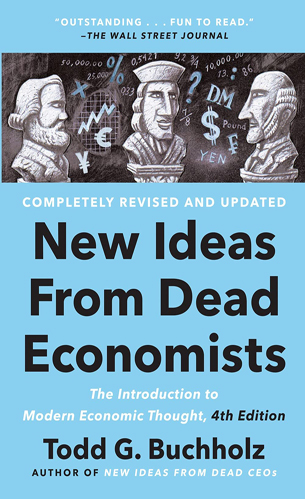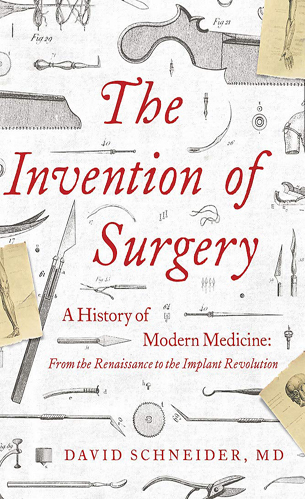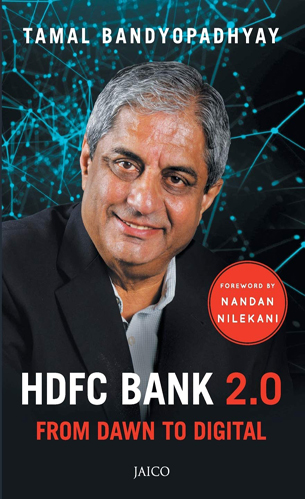Category
- Discounted Books
- English Book Bundles
- University Magazines
- சிறுவர்களுக்கான புத்தகங்கள்
- Children Books
- English Books
- Current Affairs
- Military & Intelligence
- Short Stories
- Fiction
- Poetry
- Environment & Nature
- Science
- Medicine
- Linguistics
- Atheism & Agnosticism
- (Auto)Biography & Memoir
- Business & Management
- Creativity
- Economics
- Education & Research
- Health & Nutrition
- History
- Humor
- Love & Relationships
- Parenting
- Personal Development
- Personal Finance
- Philosophy
- Politics
- War
- Psychology
- Religion & Spirituality
- Society & Culture
- Sports
- Travel & Adventure
- Technology & the Future
- True Crime
- Women Empowerment
- தமிழ் Books
- Book Bundles ( தமிழ் )
- சட்டம்
- இயற்கை
- கட்டுரை
- கணிதம்
- பயணக்குறிப்புகள்
- விவசாயம்
- அரசியல்
- ஆரோக்கியம்
- உளவியல்
- புனைவு
- காதல் மற்றும் உறவு
- சமூகவியல்
- சுயசரிதைகள் மற்றும் நினைவுகள்
- சுயமுன்னேற்றம்
- தத்துவஞானம்
- தொழில்நுட்பம் & எதிர்காலம்
- பொருளாதாரம்
- போர்
- பணம்
- மதம் & ஆன்மீகம்
- வணிகம் & மேலாண்மை
- வரலாறு
- விஞ்ஞானம் & பிரபல அறிவியல்
- விளையாட்டு
- சினிமா
- கவிதைகள்
- குழந்தை வளர்ப்பு
- குற்றம்
- மருத்துவம்
- மொழி
Product categories
- Children Books
- Discounted Books
- English Book Bundles
- English Books
- (Auto)Biography & Memoir
- Atheism & Agnosticism
- Business & Management
- Creativity
- Current Affairs
- Economics
- Education & Research
- Environment & Nature
- Fiction
- Health & Nutrition
- History
- Humor
- Linguistics
- Love & Relationships
- Medicine
- Military & Intelligence
- Parenting
- Personal Development
- Personal Finance
- Philosophy
- Poetry
- Politics
- Psychology
- Religion & Spirituality
- Science
- Short Stories
- Society & Culture
- Sports
- Technology & the Future
- Travel & Adventure
- True Crime
- War
- Women Empowerment
- University Magazines
- சிறுவர்களுக்கான புத்தகங்கள்
- தமிழ் Books
- Book Bundles ( தமிழ் )
- அரசியல்
- ஆரோக்கியம்
- இயற்கை
- உளவியல்
- கட்டுரை
- கணிதம்
- கவிதைகள்
- காதல் மற்றும் உறவு
- குற்றம்
- குழந்தை வளர்ப்பு
- சட்டம்
- சமூகவியல்
- சினிமா
- சுயசரிதைகள் மற்றும் நினைவுகள்
- சுயமுன்னேற்றம்
- தத்துவஞானம்
- தொழில்நுட்பம் & எதிர்காலம்
- பணம்
- பயணக்குறிப்புகள்
- புனைவு
- பொருளாதாரம்
- போர்
- மதம் & ஆன்மீகம்
- மருத்துவம்
- மொழி
- வணிகம் & மேலாண்மை
- வரலாறு
- விஞ்ஞானம் & பிரபல அறிவியல்
- விளையாட்டு
- விவசாயம்
Capital in the Twenty-First Century
Rs. 3,990.00

Thomas Piketty
- A New York Times #1 Bestseller
- An Amazon #1 Bestseller
- A Wall Street Journal #1 Bestseller
- A USA Today Bestseller
- A Sunday Times Bestseller
- A Guardian Best Book of the 21st Century
- Winner of the Financial Times and McKinsey Business Book of the Year Award 2014
- Winner of the British Academy Medal
- Finalist, National Book Critics Circle Award
“It seems safe to say that Capital in the Twenty-First Century, the magnum opus of the French economist Thomas Piketty, will be the most important economics book of the year―and maybe of the decade. Piketty, arguably the world’s leading expert on income and wealth inequality, does more than document the growing concentration of income in the hands of a small economic elite. He also makes a powerful case that we’re on the way back to ‘patrimonial capitalism,’ in which the commanding heights of the economy are dominated not just by wealth, but also by inherited wealth, in which birth matters more than effort and talent.”―Paul Krugman, New York Times
“In its magisterial sweep and ambition, Piketty’s latest work, Capital in the Twenty-First Century, is clearly modeled after Marx’s Das Kapital. But where Marx’s research was spotty, Piketty’s is prodigious. And where Marx foresaw capitalism’s collapse leading to a utopian proletariat paradise, Piketty sees a future of slow growth and Gilded Age disparities in which the wealthy–owners of capital–capture a steadily larger share of global wealth and income…Piketty’s Capital in the Twenty-First Century is an intellectual tour de force, a triumph of economic history over the theoretical, mathematical modeling that has come to dominate the economics profession in recent years. Piketty offers a timely and well-reasoned reminder that there is nothing inevitable about the dominance of human capital over financial capital, and that there is inherent in the dynamics of capitalism a natural and destabilizing tendency toward inequality of income, wealth and opportunity.”―Steven Pearlstein, Washington Post
“Magisterial… Bursting with ideas… This book is economics at its best.”―Philip Roscoe, Times Higher Education
“In Capital in the Twenty-first Century, Piketty sums up his research, tracing the history and pattern of economic inequality across a number of countries from the eighteenth century to the present, analyzing its causes, and evaluating some policy fixes. Spanning nearly 700 densely packed pages, it’s a big book in more than one sense of the word. Clearly written, ambitious in scope, rooted in economics but drawing on insights from related fields like history and sociology, Piketty’s Capital resembles nothing so much as an old-fashioned work of political economy by the likes of Adam Smith, David Ricardo, Karl Marx, or John Maynard Keynes. But what is particularly exciting about this book is that, due to advances in technology, Piketty is able to draw on data that not only spans a substantially longer historical time frame, but is also necessarily more complete and consistent than the records earlier theorists were forced to rely on. As a result, his analysis is significantly more comprehensive than those of his predecessors― and easily as persuasive… Capital is a consistently engrossing read, encompassing topics including the stunning comeback that inherited wealth has made in today’s advanced economies, the dubiousness of the economic theory that a worker’s wage is equal to his or her marginal productivity, the moral insidiousness of meritocratic justifications of inequality, and more. But the book’s major strength lies in Piketty’s ability to see the big picture. His original and rigorously well-documented insights into the deep structures of capitalism show us how the dynamics of capital accumulation have played out historically over the past three centuries, and how they’re likely to develop in the century to come… America’s twenty-first-century inequality crisis is, if anything, even more daunting and complex than the one we experienced a century ago. But as Piketty reminds us, the solutions to this problem are political, and they lie within our grasp. Should Americans choose to deploy those solutions, not only would we be doing the right thing, we’d be living up to our deepest traditions and most cherished ideals.”―Kathleen Geier, Washington Monthly
Out of stock
Notify me when stock available
What are the grand dynamics that drive the accumulation and distribution of capital? Questions about the long-term evolution of inequality, the concentration of wealth, and the prospects for economic growth lie at the heart of political economy. But satisfactory answers have been hard to find for lack of adequate data and clear guiding theories. In Capital in the Twenty-First Century, Thomas Piketty analyzes a unique collection of data from twenty countries, ranging as far back as the eighteenth century, to uncover key economic and social patterns. His findings will transform debate and set the agenda for the next generation of thought about wealth and inequality.
Piketty shows that modern economic growth and the diffusion of knowledge have allowed us to avoid inequalities on the apocalyptic scale predicted by Karl Marx. But we have not modified the deep structures of capital and inequality as much as we thought in the optimistic decades following World War II. The main driver of inequality―the tendency of returns on capital to exceed the rate of economic growth―today threatens to generate extreme inequalities that stir discontent and undermine democratic values. But economic trends are not acts of God. Political action has curbed dangerous inequalities in the past, Piketty says, and may do so again.
A work of extraordinary ambition, originality, and rigor, Capital in the Twenty-First Century reorients our understanding of economic history and confronts us with sobering lessons for today.
About the Author
Thomas Piketty (French: [tɔˈma pikɛˈti]; born on 7 May 1971) is a French economist who works on wealth and income inequality. He is a professor (directeur d’études) at the École des hautes études en sciences sociales (EHESS), professor at the Paris School of Economics and Centennial professor at the London School of Economics new International Inequalities Institute.
He is the author of the best-selling book Capital in the Twenty-First Century (2013), which emphasises the themes of his work on wealth concentrations and distribution over the past 250 years. The book argues that the rate of capital return in developed countries is persistently greater than the rate of economic growth, and that this will cause wealth inequality to increase in the future. He considers that to be a problem, and to address it, he proposes redistribution through a progressive global tax on wealth.
Book Specifications
Title: Capital in the Twenty-First Century
Author: Thomas Piketty
Language: English
Binding: Paperback
Pages: 816
Weight: 680g
Published Year: 2014
Publisher: Harvard University Press
ISBN: 978-0674980259
Dimensions: 14 x 1.5 x 21.6 cm
Print size: Please feel free to drop us a message.
Related products
-
Guns, Germs, and Steel: The Fates of Human Societies
Rs. 2,990.00or 3 X Rs.996.67 with Read more
Read moreJared Diamond
- New York Times Bestseller
- Pulitzer Prize for General Nonfiction (1998)
- Royal Society Science Book Prize for General Prize (1998)
- California Book Award for Nonfiction (Gold) (1997)
- Puddly Award for History (2001)
- Phi Beta Kappa Award in Science (1997)
‘A book of big questions, and big answers‘ Yuval Noah Harari, bestselling author of Sapiens
“Artful, informative, and delightful…. There is nothing like a radically new angle of vision for bringing out unsuspected dimensions of a subject, and that is what Jared Diamond has done.” ― William H. McNeil, New York Review of Books
“An ambitious, highly important book.” ― James Shreeve, New York Times Book Review
“A book of remarkable scope, a history of the world in less than 500 pages which succeeds admirably, where so many others have failed, in analyzing some of the basic workings of culture process…. One of the most important and readable works on the human past published in recent years.” ― Colin Renfrew, Nature
“The scope and the explanatory power of this book are astounding.”
― The New Yorker“No scientist brings more experience from the laboratory and field, none thinks more deeply about social issues or addresses them with greater clarity, than Jared Diamond as illustrated by Guns, Germs, and Steel. In this remarkably readable book he shows how history and biology can enrich one another to produce a deeper understanding of the human condition.” ― Edward O. Wilson, Pellegrino University Professor, Harvard University
“Serious, groundbreaking biological studies of human history only seem to come along once every generation or so. . . . Now [Guns, Germs, and Steel] must be added to their select number. . . . Diamond meshes technological mastery with historical sweep, anecdotal delight with broad conceptual vision, and command of sources with creative leaps. No finer work of its kind has been published this year, or for many past.” ― Martin Sieff, Washington Times
“[Diamond] is broadly erudite, writes in a style that pleasantly expresses scientific concepts in vernacular American English, and deals almost exclusively in questions that should interest everyone concerned about how humanity has developed. . . . [He] has done us all a great favor by supplying a rock-solid alternative to the racist answer. . . . A wonderfully interesting book.” ― Alfred W. Crosby, Los Angeles Times
“An epochal work. Diamond has written a summary of human history that can be accounted, for the time being, as Darwinian in its authority.” ― Thomas M. Disch, The New Leader
-
Metamorphosis
Rs. 990.00or 3 X Rs.330.00 with Read more
Read moreFranz Kafka
“Kafka’s stoic Euro-alienation meets and merges with Kuper’s thoroughly American rock and roll alienation.”—Jules Feiffer
“The ride from book to comic can be bumpy. Mr. Kuper navigates the transition with precision.”—New York Times
“Kafka’s anguished archetypal characters are easily rendered into visual equivalents and given new life in Kuper’s raw, expressionistic graphic style.”—Publishers Weekly
“Darkly appropriate . . . Kuper’s work rivals that of Art Spiegelman.”—Chicago Sun-Times
“Bubbling beneath the surface is a caustic batch of black humor that is as much unsettling as it is absurd. This is the magic of Kafka. And Kuper gives it a postmodern edge here, with an intriguing dance of picture and text.”—Gannett News Service
-
Mossad: The Great Operations of Israel’s Secret Service
Rs. 2,690.00or 3 X Rs.896.67 with Read more
Read moreMichael Bar-Zohar & Nissim Mishal
The Mossad is universally recognized today as the greatest intelligence service in the world. It is also the most enigmatic one, shrouded in a thick veil of secrecy. Many of its fascinating feats are still unknown; most of its heroes remain unnamed. Here, for the first time the veil is lifted by two Israeli authors.
From the famous cases – – the kidnapping of Eichmann from Argentina, the systematic tracking down of those responsible for the Munich Massacre – to lesser-known episodes, shrouded in darkness, this extraordinary book describes the dramatic, largely secret history of the Mossad, and the Israeli intelligence community. It examines the covert operations, the targeted assassinations, the paramilitary operations within and outside Israel. It also reveals the identities of the best Mossad agents and leaders, whose personal stories are interwoven with the great Mossad operations.
-
The Splendid and the Vile: A Saga of Churchill, Family and Defiance During the Blitz
Rs. 3,890.00Original price was: Rs. 3,890.00.Rs. 2,990.00Current price is: Rs. 2,990.00.or 3 X Rs.996.67 with Read more
Read moreErik Larson
- #1 New York Times Bestseller
- Goodreads Choice Award Nominee for History & Biography (2020)
‘Fresh, fast and deeply moving … Larson’s deft portraits show the essential connection that words created between the powerful and the powerless, capturing the moments that defined life for millions struggling to survive the decisions of a few’ New York Times Book Review
‘If you want to look back at a really important part of history with fresh eyes, this is the book for you … Gripping and wonderful’ Alan Carr
‘There are countless books about World War II, but there’s only one Erik Larson … There are many things to admire about The Splendid and the Vile, but chief among them is Larson’s electric writing. The book reads like a novel, and even though everyone (hopefully) knows how the war ultimately ended, he keeps the reader turning the pages with his gripping prose.’ NPR
‘A particularly gripping read, written with bounce and brio. Larson pulls together vivid vignettes – some moving, some amusing, a few grim … A fine writer of narrative nonfiction history.’ Robbie Millen, Times
‘A captivating history of Churchill’s heroic year, with more than the usual emphasis on his intimates.’ Kirkus Reviews (starred review)
‘This book is peppered with eye-popping details … A deeply compelling work of history … Without resorting to heroism, it makes one long powerfully for real leadership’ Lit Hub
-
Homo Deus: A Brief History of Tomorrow
Rs. 3,290.00or 3 X Rs.1,096.67 with Add to cart
Add to cartYuval Noah Harari
**THE MILLION COPY BESTSELLER**
NEW YORK TIMES BESTSELLER
Wellcome Book Prize Nominee for Longlist (2017)
“Homo Deus will shock you. It will entertain you. Above all, it will make you think in ways you had not thought before.” — Daniel Kahneman, author of Thinking Fast, and Slow
“Thrilling to watch such a talented author trample so freely across so many disciplines… Harari’s skill lies in the way he tilts the prism in all these fields and looks at the world in different ways, providing fresh angles on what we thought we knew… scintillating.” — Financial Times
“Spellbinding… This is a very intelligent book, full of sharp insights and mordant wit… It is a quirky and cool book, with a sliver of ice at its heart… It is hard to imagine anyone could read this book without getting an occasional, vertiginous thrill.” — Guardian
“Harari is an intellectual magpie who has plucked theories and data from many disciplines – including philosophy, theology, computer science and biology – to produce a brilliantly original, thought-provoking and important study of where mankind is heading.” — Evening Standard (London)
“I enjoyed reading about these topics not from another futurist but from a historian, contextualizing our current ways of thinking amid humanity’s long march–especially…with Harari’s ability to capsulize big ideas memorably and mingle them with a light, dry humor…Harari offers not just history lessons but a meta-history lesson.” — Washington Post
“What elevates Harari above many chroniclers of our age is his exceptional clarity and focus.” — London Sunday Times
“A remarkable book, full of insights and thoughtful reinterpretations of what we thought we knew about ourselves and our history.” — The Guardian
“Provocative…the handiwork of a gifted thinker.” — Jennifer Senior, New York Times
“[A] great book…not only alters the way you see the world after you’ve read it, it also casts the past in a different light. In Homo Deus, Yuval Noah Harari shows us where mankind is headed in an absolutely clear-sighted & accessible manner.” — Mail on Sunday
-
Fallen Leaves: Last Words on Life, Love, War, and God
Rs. 2,790.00Original price was: Rs. 2,790.00.Rs. 2,290.00Current price is: Rs. 2,290.00.or 3 X Rs.763.33 with Read more
Read moreWill Durant
Praised as a “revelatory” book by The Wall Street Journal, this is the last and most personal work of Pulitzer Prize–winning author and historian Will Durant, discovered thirty-two years after his death.
“Fallen Leaves is in some ways a slight book. But it is also a revelatory one. Most of Durant’s work is about the thoughts and actions of others. Fallen Leaves is very much about the thoughts of Will durant concerning—well, almost everything. You’ll find short essays on childhood, old age, death, war, politics, capitalisn, art, sex, God and morality. … Above all, Fallen Leaves is a portrait of a sensibility. … Durant was a remarkable specimen of that nearly extinct species, a civilized liberal of wide learning and even wider sympathy for the fundamentals of human aspiration.” ― The Wall Street Journal
“Short but persuasive commentaries on a diversity of topics from a respected scholar of humanity.” ― Kirkus Reviews
“Some passages, such as his observations on youth and middle age, are personal and specific, while others, such as his ruminations on the existence of God, border on philosophy. . . . [And others] still carry a beneficial sting, such as his thoughts on war and nationalism and his plea for racial harmony (Durant’s civil rights advocacy dated back to 1914). . . . a thought-provoking array of opinions.” ― Publishers Weekly
“Some of his musings are provocative, even outrageous…this is a work that demands we think, and it is a worthy conclusion to a long and distinguished career.” ― Booklist
-
The Man Who Created the Middle East: A Story of Empire, Conflict and the Sykes-Picot Agreement
Rs. 2,990.00or 3 X Rs.996.67 with Read more
Read moreChristopher Simon Sykes
At the age of only 36, Sir Mark Sykes was signatory to the Sykes-Picot agreement, one of the most reviled treaties of modern times. A century later, Christopher Sykes’ lively biography of his grandfather reassesses his life and work, and the political instability and violence in the Middle East attributed to it.
The Sykes-Picot agreement was a secret pact drawn up in May 1916 between the French and the British, to divide the collapsing Ottoman Empire in the event of an allied victory in the First World War. Agreed without any Arab involvement, it negated an earlier guarantee of independence to the Arabs made by the British. Controversy has raged around it ever since.
Sir Mark Sykes was not, however, a blimpish, ignorant Englishman. A passionate traveller, explorer and writer, his life was filled with adventure. From a difficult, lonely childhood in Yorkshire and an early life spent in Egypt, India, Mexico, the Arabian desert, all the while reading deeply and learning languages, Sykes published his first book about his travels through Turkey aged only twenty. After the Boer War, he returned to map areas of the Ottoman Empire no cartographer had yet visited. He was a talented cartoonist, excellent mimic and amateur actor, gifts that ensured that when elected to parliament a full House of Commons would assemble to listen to his speeches.
During the First World War, Sykes was appointed to Kitchener’s staff, became Political Secretary to the War Cabinet and a member of the Committee set up to consider the future of Asiatic Turkey, where he was thirty years younger than any of the other members. This search would dominate the rest of his life. He was unrelenting in his pursuit of peace and worked himself to death to find it, a victim of both exhaustion and the Spanish Flu.
Written largely based on the previously undisclosed family letters and illustrated with Sykes’ cartoons, this sad story of an experienced, knowledgeable, good-humoured and generous man once considered the ideal diplomat for finding a peaceful solution continues to reverberate across the world today.
-
New Ideas from Dead Economists: The Introduction to Modern Economic Thought
Rs. 2,490.00or 3 X Rs.830.00 with Read more
Read moreTodd G. Buchholz
“If you read only one economics book this year, read this one.” —Larry Summers, secretary of the Treasury under President Clinton, director of the National Economic Council under President Obama
“Outstanding . . . fun to read.” —The Wall Street Journal
An entertaining and widely-praised introduction to great economic thinkers throughout history, now in its fourth edition, with updates and commentary on the 2020 “great cessation,” Trump and Obama economic policies, the dominance of Amazon, and many other timely topics.
-
The Invention of Surgery: A History of Modern Medicine: From the Renaissance to the Implant Revolution
Rs. 2,990.00Original price was: Rs. 2,990.00.Rs. 2,690.00Current price is: Rs. 2,690.00.or 3 X Rs.896.67 with Read more
Read moreDr. David Schneider
“Brace yourself! The Invention of Surgery is a globetrotting historical adventure, told from the inside of the operating room. Through a series of colorful, bizarre and, at times, stomach-churning stories, Dr. Schneider reveals how the human, messy side of surgical history adds up to the wondrous advances we see today. This is medical writing at its most exhilarating.”
– Michael Paul Mason, author of Head Cases: Stories of Brain Injury and Its Aftermath“Comprehensively researched, deftly told, and radiating both intellect and passion, The Invention of Surgery is essential reading for anyone interested not only in the history but also in the future of medicine. This book is a labor of love, and it shows.”
– Frank Huyler, author of The Blood of Strangers: Stories from Emergency Medicine“Rampaging through surgery’s history, David Schneider’s unique take on its heroes and their achievements is cut with poignant, pithy stories from his own experience of repairing our bodies. He celebrates the audacity of putting something foreign inside of us, ruminates on its current costs and ethics, and asks us to join him on a fascinating ride into the future of implants.”
– Helen Bynum PhD, author of Spitting Blood: The History of Tuberculosis“Bold and compelling… Uniformly excellent, and often wryly amusing.“– The Wall Street Journal
“A history of surgery that is informative, entertaining, and highly readable.” –Library Journal
-
HDFC Bank 2.0: From Dawn to Digital
Rs. 2,990.00Original price was: Rs. 2,990.00.Rs. 2,690.00Current price is: Rs. 2,690.00.or 3 X Rs.896.67 with Read more
Read moreTamal Bandyopadhyay
“Tamal combines his financial knowledge, eye for detail, and an excellent storytelling style to create a vivid portrait of India’s most valued bank and its path to the future.” –NANDAN NILEKANI, Co-founder and Chairman of Infosys and Founding Chairman of UIDAI
“Tamal has enthusiastically documented the epiphany that HDFC Bank’s leadership had in starting out on their digital journey. India is set for seismic changes to day-to-day banking over the next few years and banks who don’t commit to fully re-engineering their practice around becoming a technology company that delivers real-time, contextual banking experiences will wither on the vine. HDFC Bank has made a solid start on this journey, but the final chapter has not yet been written.” –BRETT KING, Founder, Moven and bestselling author of Bank 4.0
The seeds of change were sown in September 2014, when HDFC Bank MD Aditya Puri went to Silicon Valley to meet the brightest tech minds in the world. By the time he got back, he knew exactly what needed to be done.
It was time for a revolution. Instead of waiting to be disrupted by fintech companies, HDFC Bank went all out to disrupt itself, recasting its role and scope on a scale that has never been attempted before. In one of the biggest transformations ever undertaken in any business, HDFC Bank wants to become a platform facilitating a financial experience.
Tamal Bandyopadhyay chronicles HDFC Bank’s own digital disruption exercise through the very people who drove it, narrating a story that’s as compelling as unique in India’s financial system. With his keen eye for detail, deep knowledge of banking and unparalleled storytelling ability, Bandyopadhyay recounts the journey of India’s most valued lender from a life cycle bank to a lifestyle bank.

